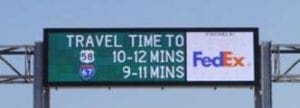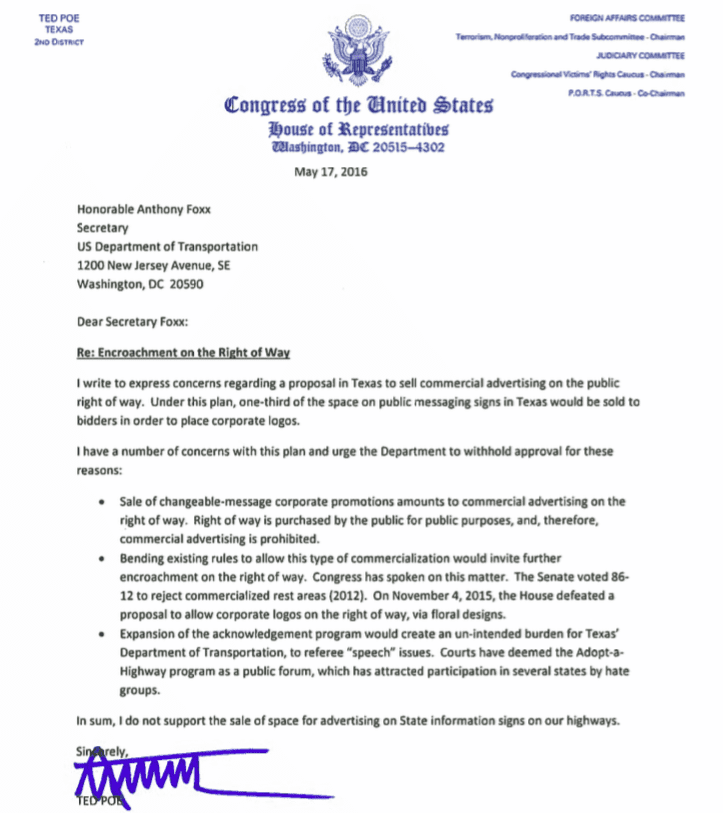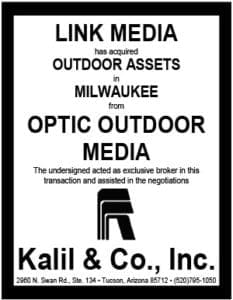 Key states are exploring plans to allow commercial advertising on highway rights of way. There is a Texas proposal for example which would sell to corporate sponsors one third of the space on public traffic signs, like the picture on the right.
Key states are exploring plans to allow commercial advertising on highway rights of way. There is a Texas proposal for example which would sell to corporate sponsors one third of the space on public traffic signs, like the picture on the right.
California’s Legislature recently debated a bill to allow commercial advertising on LED signs on roadways, to supplement transportation funding. This bill was defeated 19-17 in a Senate committee, but no one would be surprised to see it resurface later this year. You can read a letter from NATSO (the trade association for truckstops and travel plazas) objecting to the California proposal here.
Insider thinks that allowing commercial advertising on highway rights of way is a bad idea for several reasons.
- It threatens state highway funding. The federal government prohibits advertising on federal rights of ways. Any State which runs advertising on public safety signs must obtain federal signoff or face loss of federal highway funds. Both are bad options; the Federal Highway Administration should retain its longstanding policy to prohibit ads within the right of way.
- It smacks of hypocrisy and self-dealing. Freeway advertising is bad except if we are getting paid seems to be the message. Insider thinks that any State which has stringent outdoor regulations and permits advertising on state public safety billboards is asking for a lawsuit by disadvantaged private billboard companies.
- It creates free speech issues and disputes. Several states have tangled with free speech issues in their Adopt-a-Highway programs. Volunteers who pick up litter along highways are recognized as sponsors on Adopt-a-Highway signs on the public right of way. In 2012, Georgia denied a Klan group’s application on grounds that the Adopt-a-Highway program is for “civic-minded organizations in good standing.” Rejecting that reasoning, Georgia Courts said viewpoint-based discrimination was not allowed under the Georgia Constitution.
Insider has attached a copy of a letter Congressman Ted Poe (R-TX) sent to the Secretary of the US Department of Transportation talking about the issue.

Paid Ad

















